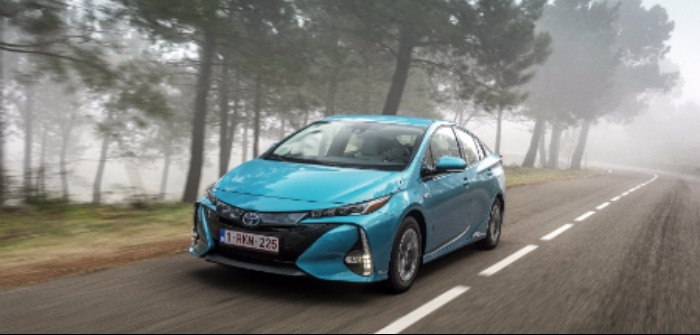Toyota has announced that its cumulative worldwide hybrid, and plug-in hybrid, vehicle sales has passed the ten million mark. The Japanese OEM has stated that this constitutes much more than just a numerical milestone, and is an achievement that ‘demonstrates the staying power of a technology that is emerging as a mainstream choice for helping reduce greenhouse gas emissions and other pollutants’.
Toyota’s hybrid technology was first deployed in the Coaster Hybrid EV coach in August 1997, followed in December the same year by the original Prius, the world’s first mass-produced hybrid passenger car. Since then, Toyota’s hybrids have enjoyed growing popularity: the latest one million sales have been recorded in just nine months. There are currently 33 different Toyota and Lexus hybrid models worldwide and the technology is available to customers in more than 90 countries and regions.
“When we launched Prius, no one even knew what a hybrid was,” said Takeshi Uchiyamada, chairman of the board of directors at Toyota. “Those who drove it were called geeks or other names. Today, thanks to those early adopters who gave Prius a chance, hybrids have grown in popularity, and have ridden a wave of success out of the unknown and into the mainstream. We are grateful to each and every one of our customers who has helped us achieve this important milestone of 10 million hybrid sales. We are committed to continue working hand-in-hand with them to tackle global environmental issues.”
Toyota estimates that, as of 31 January 2017, the use of Toyota hybrid vehicles in place of petrol-powered vehicles of similar size and performance, has results in approximately 77 million fewer tonnes of CO2 entering the atmosphere and has saved around 29 million liters of petrol.
The Toyota Environmental Challenge 2050, announced in October 2015, set challenges to help reduce the global negative environmental impact of vehicles to as close to zero as possible and to contribute to the creation of a sustainable society. Hybrid continues to serve as a core environmental technology for the 21st century, providing a sound platform on which Toyota can develop new generations of vehicles that are kinder to the environment, using different fuel combinations, from battery electric vehicles to fuel cell hydrogen vehicles, such as the Mirai saloon.


